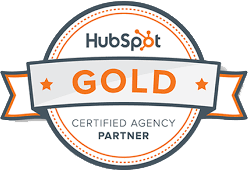You may have heard murmurs that Canada recently released a new law called Canada’s Anti-Spam Legislation (CASL). Effective July 1, 2014, this new legislation will drastically impact digital marketers and businesses that send commercial emails. Penalties for non-compliance with these strict new email marketing requirements will come at a high price. The Canadian government announced that businesses can be fined for up to $10 million dollars for failure to follow legislative guidelines.
But, what does this new legislation mean for your business? Will Canadian Spam Laws have an impact on American marketers? How can you ensure that your business remains CASL compliant?
Even if your business is run and operated outside of Canada, you still may be susceptible to CASL penalties and fines if compliance is not actively monitored and managed. This blog post aims to demystify CASL regulations, but does not constitute legal advice. Get in contact with us, if you have specific questions about how CASL may impact your business.
CASL Impacts All Commercial Electronic Messages:
CASL rules and regulations apply to any “commercial electronic message” sent from or to Canadian devices or residents of Canada. This includes emails, instant messages or text messages containing content that encourages the recipient to engage in some kind of commercial activity. Message types that are exempt from these regulations include:
- Responding to a current customer or someone who requested a response
- Messages that will be sent to countries other than Canada (be sure you are compliant with those respective country anti-spam laws)
- Messages soliciting contributions by a charity or political organization
- Messages that provide warranty, recall, safety or security information
- Messages that enforce a legal right or court order
- Messages that provide account information
- Messages going to a single recipient on the basis of a third party referral. The full name of the referrer must be included and the referee may only send one message.
If your business sends commercial electronic messages to anyone who resides in Canada, and you do not qualify for an exemption, you must ensure your communication with all Canadian residents falls in accordance with CASL regulations.
Express/Explicit Consent vs. Implied Consent:
Under CASL regulations, all email addresses must be segmented by consent. Contacts who give express consent (i.e. explicitly sign up for a newsletter) can continue to be emailed unless they ask to be removed. To properly collect express consent, businesses must provide a clear description of what the contact will be receiving, have an opt-in process that is not pre-checked, and collect the IP address, URL, date and time stamps. All communications must also identify the person sending or person on whose behalf the message is being sent, contact information of the sender, an unsubscribe mechanism and avoid false or misleading representation anywhere in the message (message body, subject line, etc.).

Those who have given implied consent can receive commercial electronic messages for up to six months after implied consent is given. Implied consent means that a contact may not have expressly granted permission to be contacted, but consent was inferred from some sort of action. Implied consent is assumed when:
- They have purchased something from your company in the last 24 months or have inquired within the last six months
- The individual sender has an existing non-business relationship with the recipient (i.e. for charitable/volunteer organizations)
- The recipient has conspicuously published his or her address (i.e. on a website or online directory) and the message is relevant to the recipient’s business or official capacity and there is not a statement stating they do not wish to be contacted
- The recipient has provided their electronic address to the sender and the message is relevant to the recipient’s business or official capacity
Remember, the burden of proving implied consent falls onto businesses. Make sure your email marketing tool or your CRM keeps track of when the email contact was submitted—so you can adequately track the six month window. You’ll also want to ensure that you are keeping a record of all necessary data to prove consent.
Applying CASL to Lead Generation Programs:
CASL regulations will need to be taken into consideration when developing lead generation programs. Each Canadian email contact will have to be divided into two groups—one group for your implied consent contacts and one group for explicit consent contacts. Create six month campaigns that encourage implied contacts to sign up for your email marketing program. When building forms, include a required country field and be aware that all boxes must be left unchecked! By collecting country information early on and not auto-filling your subscription options, you can ensure that you are in compliance with CASL.
Luckily, there is a grace period for companies to adjust and ensure that they are in compliance with Canadian laws. For all emails collected BEFORE July 1, 2014, you have three years to gain explicit consent. All emails collected after July 1, 2014 must be CASL compliant and may only be contacted for 6 months if given implied consent.
A CASL Summary:
To align your electronic communication practices with CASL standard, any contacts that were gathered before July 1, 2014 have three years to gain express permission. Any contacts that were gathered after July 1, 2014 and have given implied consent can be contacted for up to six months. Any contact that has given explicit consent can be contacted until the recipient unsubscribes. Any violation can lead to a $10,000,000 fine for your company and up to $1,000,000 for the actual sender.
CASL provides a great opportunity to turn contacts that have only given implied consent into marketing qualified leads though a strong email marketing program and marketing automation system. If you are interested in further CASL information or are in need of support developing and implementing these programs, contact Mambo for a consultation on lead generation and marketing automation.
![]()


